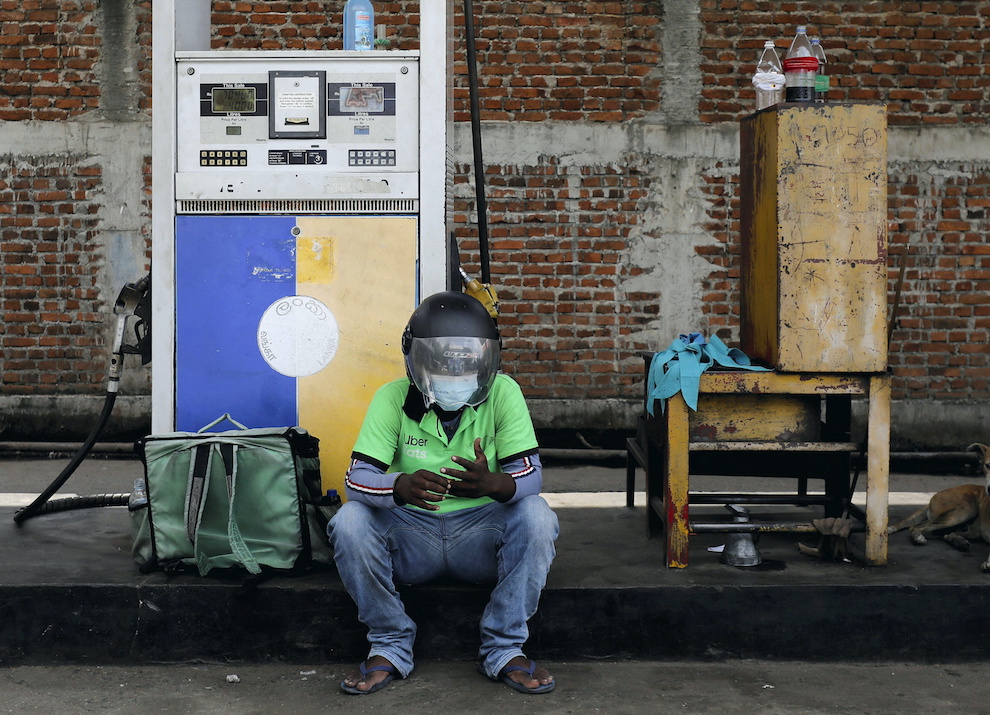Thusitha Hadaragama stood at a corner store near his home in Sri Lanka‘s Minuwangoda town this week and surveyed groceries to buy for his family of five, including two school-age children, who live on his monthly salary of 50,000 rupees ($181.82).
“Prices have gone up again. I will buy a little bit,” said the 43-year-old driver, who works in Colombo, Sri Lanka‘s capital, 40km away. “We will have to eat half of what we ate before.”
Across Sri Lanka, families like Hadaragama’s are feeling the growing pain of the country’s worst economic crisis in years, which has driven up prices of essentials and triggered shortages of everything from food to fuel.
Historically weak government finances, badly timed tax cuts and the Covid-19 pandemic, which pummelled the tourism industry and foreign remittances, have wreaked havoc on the economy.
The country now has paltry reserves – just $2.31 billion as of February – and must repay about $4 billion in debt over the rest of this year, including a $1 billion international sovereign bond that matures in July.
A 70% drop in foreign exchange reserves since January 2020 has left SriLanka struggling to pay for essential imports, including food and fuel, leading to growing unrest and even military deployments at gasoline stations.
Sri Lanka Seeks IMF, World Bank Support
On Thursday sources said the country will seek World Bank assistance to stave off a severe economic crisis, in addition to an International Monetary Fund (IMF) rescue plan to be discussed next month.
The country of 22 million people has also sought assistance from India and China.
To seek a way out of the crisis, Finance Minister Basil Rajapaksa will fly to Washington DC next month to hold talks with the IMF and officials from the World Bank. Assistance from the World Bank is seen as likely once the country agrees to an IMF-backed loan programme.
For ordinary Sri Lankans, everyday chores have become an ordeal. To fill up his motorcycle, Hadaragama now must stand in long queues and pay more than double for a litre of petrol compared to three months ago.
At home, his wife, Varuni, has cut down on how much she cooks to feed her family, which includes two teenage boys and a daughter.
“Earlier I cooked three potatoes,” she said. “Now I make only two.”
• Reuters with additional editing by Jim Pollard
ALSO on AF:
Sri Lanka Seeks Rejig of China Debt to Avoid Default
Fitch Downgrades Sri Lanka Over Rising Default Fears
























